Applications are available now for the Plumbing-Heating-Cooling Contractors—National Association (PHCC) Educational Foundation 2025 scholarship program. The organization plans to award 65 scholarships totaling $150,500 to plumbing and HVACR apprentices working for PHCC—National Association members, trade school or community college students taking plumbing or HVAC classes and college students pursuing majors directly related to the plumbing-heating-cooling Read more
PHCC
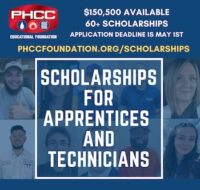
Applications are available now for the Plumbing-Heating-Cooling Contractors—National Association (PHCC) Educational Foundation 2025 scholarship program. The organization plans to award 65 scholarships totaling $150,500 to plumbing and HVACR apprentices working for PHCC—National Association members, trade school or community college students taking plumbing or HVAC classes and college students pursuing majors directly related to the plumbing-heating-cooling industry.
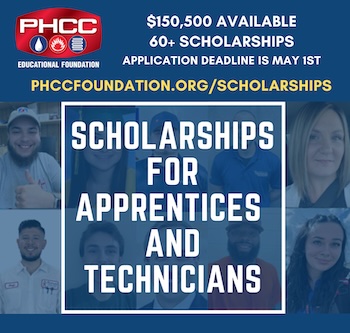 In the application process, scholarship candidates answer questions about their involvement in the trades and future career goals. They are asked to supply a letter of recommendation, which apprentices can secure from their PHCC member contractor employer, while students enrolled in trade schools or colleges can obtain it from a teacher or academic advisor. Scholarship amounts vary between $1,500 and $10,000, with most scholarships valued at $3,000. The deadline for all required documents to be turned in is May 1st, and the application form can be accessed at phccfoundation.org/scholarships.
In the application process, scholarship candidates answer questions about their involvement in the trades and future career goals. They are asked to supply a letter of recommendation, which apprentices can secure from their PHCC member contractor employer, while students enrolled in trade schools or colleges can obtain it from a teacher or academic advisor. Scholarship amounts vary between $1,500 and $10,000, with most scholarships valued at $3,000. The deadline for all required documents to be turned in is May 1st, and the application form can be accessed at phccfoundation.org/scholarships.
The scholarships are funded by contractor donations to the PHCC Educational Foundation and by these corporate sponsors: A. O. Smith, Bradford White Corporation, Delta Faucet Company, Ferguson Cares Foundation, Home Depot Pro, InSinkErator, RIDGID, Scorpion Home Services Marketing, State Water Heaters, and Sterling (a Kohler Brand).
Contractor business owners want to ensure that apprentices and technicians are invested in their training and commonly will require new hires to pay for their own classes. This can be difficult for employees who are also supporting a family or stretching their finances on entry-level earnings. The Foundation’s scholarships can provide a bridge to the point where their growing skills deliver the job earnings needed to self-fund the rest of their training. “And for employers who pay for their employees’ training, our scholarships can free up training funds the company can reinvest in other areas,” added John Zink, the Foundation’s VP of Development and Communications.
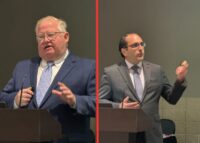
Um, yeah. With Trump ready to assume the role of President for his second term, albeit not consecutively, other than the renaming the Gulf of America, how much can we “read the room” as to changes in policies, rhetoric or general feeling moving forward to things that relate to the PHVAC industry? We recently caught Read more
Um, yeah. With Trump ready to assume the role of President for his second term, albeit not consecutively, other than the renaming the Gulf of America, how much can we “read the room” as to changes in policies, rhetoric or general feeling moving forward to things that relate to the PHVAC industry? We recently caught with Mark Velentini, VP of Legislative Affairs at the PHCC-National Association, and Charles White, VP Regulatory Affairs at the PHCC-National Association—affectionately known as the “Chuck & Mark Show” by the PHCC—as they have their finger on the pulse of DC.
MH: We can kind of gauge what sort of policies/governance may come out of Trump’s term based on his first term, but how do you think the second time around will affect the plumbing industry in general?
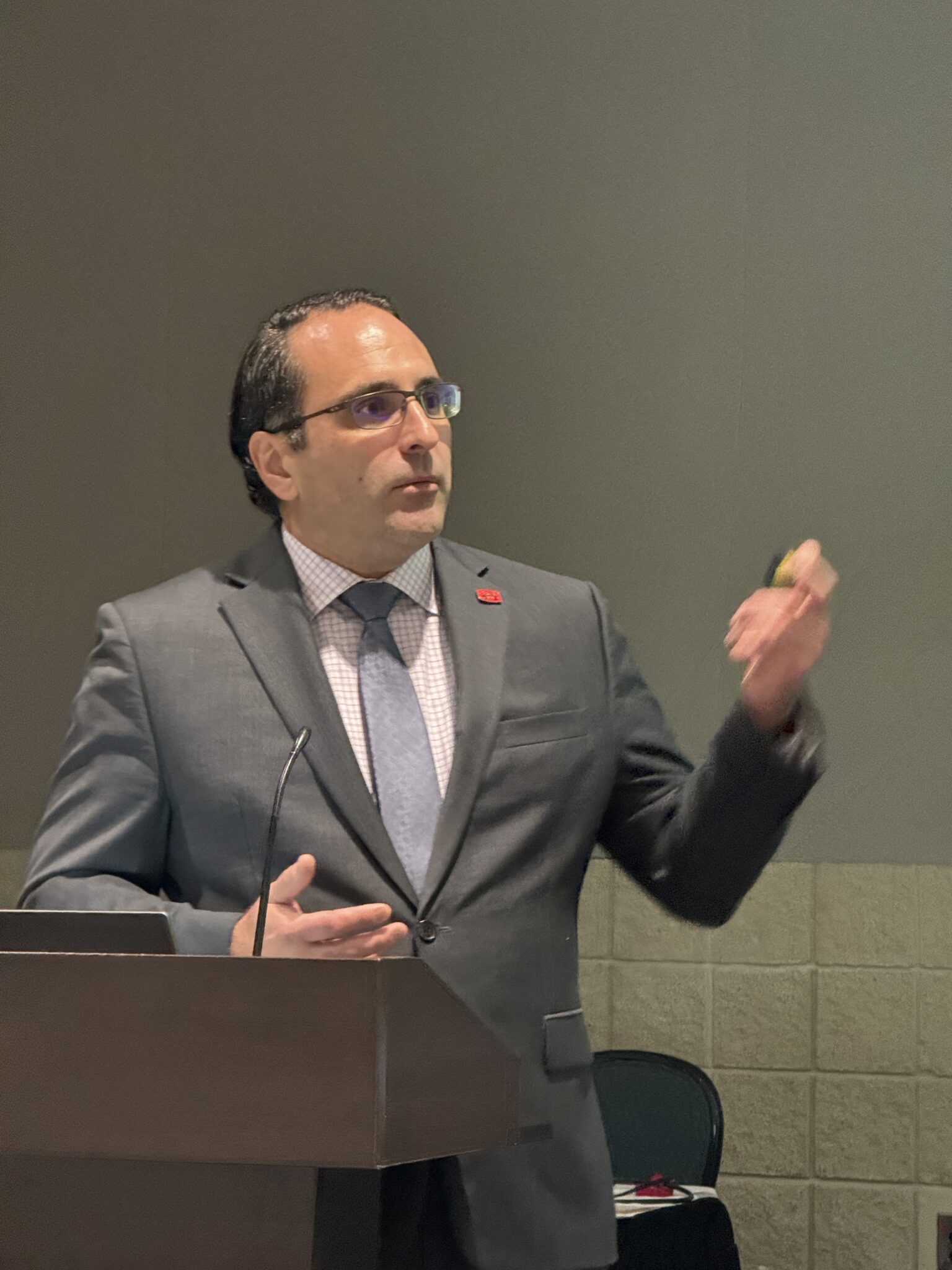
Mark Valentini
VALENTINI: A Republican Congress and administration will bode well on energy policy as PHCC members confront bans and restrictions on natural gas connections and appliances across the country. This will also bode well for tax policy as certain provisions in the Tax Cuts and Jobs Act of 2017 are set to expire which have been beneficial for many contractors, especially when considering Congress revisiting the corporate tax rate and potentially lowering it to 15% down from 21%.
MH: Does a more deregulated government mean more uphill battles for water/energy efficiency?
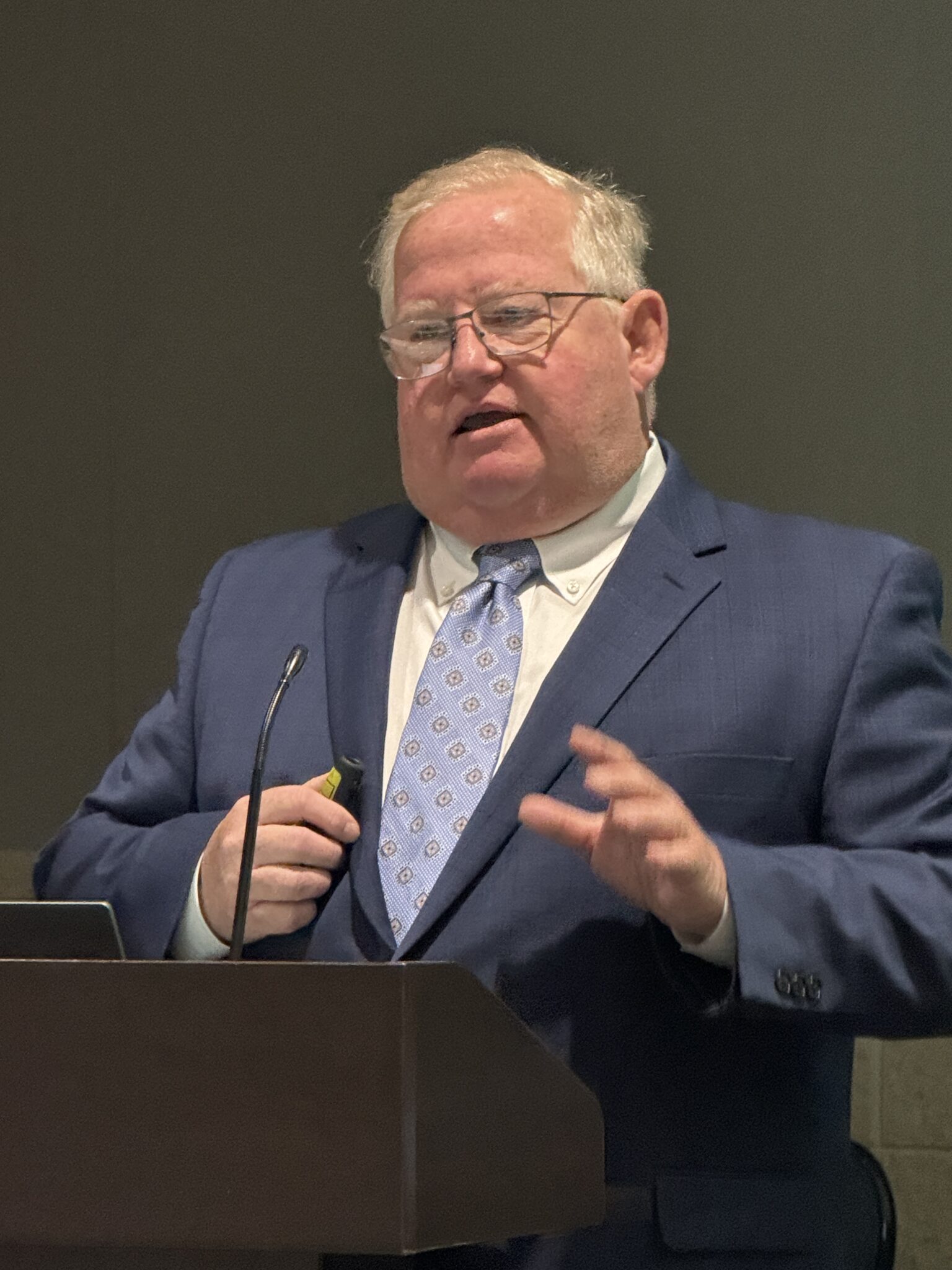
Charles White
WHITE: I think the previous Trump Administration showed us uphill battles when agencies were directed to create exempt categories like small cycle dishwashers and such. It is likely that the second Trump Administration will take these actions to the next level by moving to rewrite the underlying legislation. Having said that, the efficiency efforts will then move to the progressive states rather than being federal actions, we will probably not see much regression to less efficient standards and the high population states like California and New York will likely drive the industry to higher efficiency products.
MH: Do you think there may be changes to things like the Inflation Reduction Act or Infrastructure Bill or is that pretty much hands off at this point?
VALENTINI: It is rather early to tell, IIJA has been around for some time now and may be hard to change. The IRA has so many parts, that makes it hard to consider in one piece. Tax credits like Section 25c could be pretty safe but the HOMES and HEARS Acts may not be as safe since they represent almost $9 billion.
WHITE: Most of HOMES and HEARS programs have yet to roll out which could make them a prime target but since they have a low- and moderate-income focus, there may be an optics issue to remove those acts. The issues are complicated, but PHCC has been cautiously supportive of the IRA since much of that program flows to plumbing and HVAC contractors.
MH: What is the climate from your constituency? In other words, what are you hearing about this new election cycle—positivity, negativity or a wait and see approach?
VALENTINI: Positivity but also wait and see. PHCC must be vigilant on workforce policy as the new government may reconsider industry-recognized apprenticeships which risk watering-down training by compartmentalizing it into credentialing—contractors need skilled workers with a holistic skillset, not workers who are certified in a handful of specific tasks.
MH: How do interest rates come into play here?
VALENTINI: Lower interest rates bode well for real estate, which in turn bodes well for new construction, service, and remodeling work.
MH: From what I recall, Trump’s 1st term was pro-trades? Do you have any indication this will continue?
WHITE: While President Trump’s first term had support from the trade’s rank and file, the Industry Recognized Apprenticeship Rule received more negative public comments than perhaps any other rule. Those negative comments came overwhelmingly from those same rank and file workers. Polling data throughout the election shows that the President-elect enjoyed substantial support from skilled blue-collar workers, but his future actions must support their jobs in the workforce.
MH: Does anything change on the union front?
VALENTINI: That’s a sensitive question. I would venture to say that Teamsters and other labor groups that withheld endorsements are reading the room when it comes to their rank-and-file.
MH: Please give examples of any changes/addendums/eliminations to specific policies moving forward, if applicable. (i.e. Clean Water Act)
VALENTINI: We can expect to see legislation on tax reform and energy in the new Congress. Tight margins particularly in the House will require all Republicans to be on board to pass anything.
WHITE: It is possible that the new administration will review regulations that are currently in litigation, like the residential gas furnace rule, and perhaps decide to pull back those rules for revisions. This could also affect decisions on whether to appeal adverse court rulings such as the recent ruling against the DOL Overtime Rule.
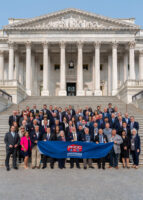
The Plumbing-Heating-Cooling Contractors–National Association (PHCC) welcomed PHCC members, chapter executives, and corporate partners to Washington, D.C., May 16-17, to meet with lawmakers and educate them on energy, economic, and workforce policies that are important to the industry and consumers. Before heading to Capitol Hill as industry experts, members first heard from political expert Charlie Cook, who was the keynote speaker Read more
The Plumbing-Heating-Cooling Contractors–National Association (PHCC) welcomed PHCC members, chapter executives, and corporate partners to Washington, D.C., May 16-17, to meet with lawmakers and educate them on energy, economic, and workforce policies that are important to the industry and consumers.
Before heading to Capitol Hill as industry experts, members first heard from political expert Charlie Cook, who was the keynote speaker for the event. Cook spoke on the current political landscape, lessons from the 2022 midterms, and predictions for 2024.

After hearing from Cook, the group was briefed by PHCC Legislative Affairs Director Mark Valentini, PHCC Vice President of Regulatory Affairs Chuck White, and a panel of other industry lobbyists. Panelists included Jim Collura, vice president and director of government affairs for the National Energy & Fuels Institute (NEFI); Steve Rossi, vice president of advocacy for the American Supply Association (ASA); and Robert Wolfer, manager of government relations for Bradford White Corp (PHCC Strategic Partner). That evening, the group attended a reception in the historic Caucus Room of the Cannon House Office Building. This reception was held in conjunction with the Heating Air-conditioning and Refrigeration Distributors International (HARDI) and the Air-conditioning, Heating and Refrigeration Institute (AHRI). Members of Congress stopped by to network with members of PHCC and these other industry groups.
The next morning during breakfast, attendees heard insights from a second Washington Insider panel consisting of Craig Brightup, chief executive officer of the Brightup Group LLC; Matt Kiessling, senior director of state affairs for the American Gas Association (AGA); and Christopher Lindsay, vice president of government relations for the International Association of Plumbing and Mechanical Officials (IAPMO – PHCC Supporting Sponsor). After a quick stop for a picture on the Capitol steps, they headed to their respective meetings. In total, 71 PHCC members from 27 different states had 111 meetings with elected officials and their staffs. At a closing roof-top reception that evening, members spoke in-depth about how much they valued the in-person meetings on Capitol Hill, in addition to getting to participate in the rest of the sessions as a part of this two-day event.
“The 2023 PHCC Legislative Conference was an extremely valuable event for all who attended,” said PHCC—National Association President Dave Frame. “Besides the very beneficial one-on-one meetings with legislators, the conference was a great opportunity for PHCC members to connect with each other and with others in the industry supply chain. Together, we are able to accomplish so much more on behalf of our members, the industry, and society.”
The conference was sponsored by PHCC Corporate Partner Federated Insurance. Next year’s event will be May 21-22, 2024.

Washington—With more than more than 100 PHCC contractors, state and local chapter executives, and p-h-c industry partners descending on Capitol Hill last month for the Plumbing Heating Cooling Contractors (PHCC) Legislative Conference, the message is quite clear: the future starts now. PHCC National President Laurie Crigler set the tone for the event prior to meetings Read more
Washington—With more than more than 100 PHCC contractors, state and local chapter executives, and p-h-c industry partners descending on Capitol Hill last month for the Plumbing Heating Cooling Contractors (PHCC) Legislative Conference, the message is quite clear: the future starts now.
PHCC National President Laurie Crigler set the tone for the event prior to meetings on Capitol Hill, as p-h-c industry partners delivered a unified message to members of Congress about ongoing challenges that will have a long-term impact on the p-h-c industry and the country. “Politics is NOT a spectator sport and your involvement is key to successful advocacy at all levels—local, state and national. None of this works without you,” she said.

PHCC and its advocacy group on the steps of Capitol Hill.
Moreover, PHCC continues to educate members of congress of the tremendous opportunities within the plumbing and HVAC trades, “Part of the answer to job growth in this country has to be the continued development of the skilled trades. It’s not just talk anymore,” says Mark Riso, Vice President of Legislative Affairs, PHCC.
PHCC members expressed key support for workforce development through the Promoting Real Opportunity Success and Prosperity through Education Reform (PROSPER). Riso added that he is happy with the “positive knowledge on Capitol Hill, as lawmakers continue to look at apprenticeship programs.”
Zach Boren, Director of Policy and Standards for the Office of Apprenticeship for the Department of Labor, shared the latest from the Department’s Task Force on Apprenticeship expansion. While citing statistics, Boren noted that more than six million jobs are unfilled and more than eight million workers lack the necessary credentials. “Apprenticeships are the key to closing the nation’s skills gap as they are a customizable, flexible and proven business-driven model for developing workers,” Boren said.

PHCC vice president of Legislative Affairs, Mark Riso and PHCC president, Laurie Crigler.
In the coming months, the department will support innovative, work-based learning approaches, technology modernization, and state initiatives to expand apprenticeship programs. By modernizing the government’s role in apprenticeships while developing new programs, they expect to achieve President Trump’s goal of attracting one million new apprentices over the next five years. This fall, the Department of Labor will again host National Apprenticeship Week (NAW) to highlight the benefits of apprenticeship.
In addition to workplace development in the trades, during several events and meetings with Congressional members and their staff, PHCC members advocated for increased water system infrastructure spending, and career and technical education, while thanking congressional members for recently passed tax reform.

Rep. David Schweirkert (R-AZ)
PHCC also expressed support for workforce development though reauthorization of the Water Infrastructure Finance and Innovation Act (WIFIA). Members of Congress are aware of the country’s infrastructure problems, and Riso reiterates that they are not taking for granted the shape of the water systems in this country. “Flint was a wake-up call; we are impressed with members of the Hill’s knowledge of the degradation of the country’s water systems, and the steps needed to resolve the overall problem,” says Riso.
At the Congressional Breakfast, guest speaker Rep. Jim Costa (D-CA) gave his insights into the president’s infrastructure initiative, stating, “We’ve been living off the infrastructure investments of our parents and grandparents, and haven’t been making the same investments (as they have).” Costa added that Congress will need to figure out how federal components can help fund infrastructure improvements, “and this can only happen in a bi-partisan fashion.”
One of the highlights of this year’s conference was the annual Congressional Reception at Rayburn House Office Building on Capitol Hill. Several members of Congress including Rep. Steve Chabot, Rep. Tom O’Halleran and Rep. David Schweikert attended the reception and spoke in favor of PHCC’s support of WIFIA and the PROSPER Act.

Rep. Jim Costa (D-CA)
Rep. David Schweikert (R-AZ), who serves on the House Ways and Means Tax Reform Subcommittee, gave a behind-the-scenes look at the complexities involved with passing the massive tax reform bill. “The first step was to pass tax reform,” he said. “The calculator won. Now we can start seeing some great things in our society.”
PHCC’s next legislative event in 2018 will be an education session at CONNECT 2018, “Decoded: Legislative and Regulatory Rules and Regulations Solved!” during which Riso and vice president of Regulatory Affairs Chuck White will explain the complex rules and regulations that keep contractors up at night. The next PHCC Legislative Conference is scheduled May 7-8, 2019, on Capitol Hill.
“PHCC is a conduit to help its members partner with lawmakers; to partner with the process to be able to design laws and rules to improve the quality of life for everybody,” says Riso.
